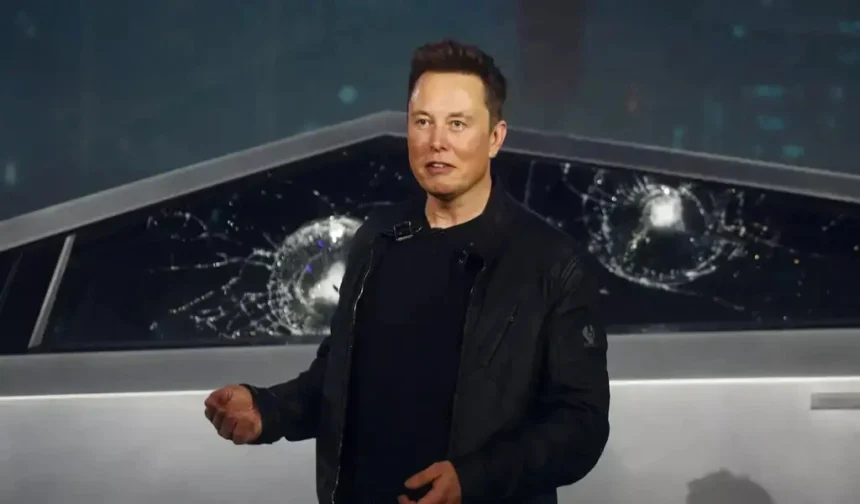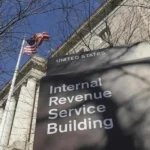(CTN News) – Tesla’s first-quarter vehicle sales declined by 20% year-over-year, attributed to decreased deliveries influenced by anti-Musk sentiment, plant retooling, and seasonal factors.
The company is seeing supply chain and cost difficulties due to the US-China trade conflict.
Tesla reported a substantial decline in first-quarter profitability, exacerbated by a decrease in deliveries, partly attributable to CEO Elon Musk’s political involvement. Revenue and net profitability significantly underperformed analysts’ expectations due to macroeconomic uncertainty and factory retooling for new models.
Notwithstanding the disappointing results, Tesla’s shares increased over 5% in after-hours trading, as stock markets surged following US President Donald Trump’s assertion that he did not intend to dismiss Federal Reserve Chair Jerome Powell.
Nevertheless, Tesla’s stock has declined by 34% this year, underperforming compared to the other six companies in the “Magnificent Seven” technological cohort.
Tesla’s profitability diminishes sharply.
Tesla’s earnings per share declined by 40% to $0.27 (€0.23), and car sales decreased by 20% year-on-year to $14 billion (€12.28 billion) in the first quarter of this year.
Total sales amounted to $19.3 billion (€16.92 billion), reflecting a 9% decline from the prior year. Simultaneously, revenue from energy generation and storage increased by 67%, establishing “a fourth consecutive record for Powerwall installations.”
In its results report, the business attributed the revenue decline to reduced vehicle deliveries, “partially due to the Model Y update across all four vehicle factories,” diminished average selling prices from “mix and sales incentives,” and adverse foreign exchange impacts.
However, the decrease was somewhat alleviated by an increase in regulatory credit revenue and the growth of energy generation and storage services.
Tesla delivered 336,681 units in the first quarter, the lowest since 2022, representing a 13% decrease compared to the same period last year. It is essential to acknowledge that Tesla encounters its most challenging quarter of the year in the first quarter.
Battery production is anticipated to be impeded by supply shortages and tariffs, notwithstanding the continued growth of the energy sector. The company stated that Megafactory Shanghai will be a crucial asset in addressing global energy storage demand during a time of ambiguous cost structure in the United States.
In the results call, CFO Vaibhav Taneja remarked that the energy sector is “outsized” due to tariffs, given that China provides the predominant share of battery cells.”A mere fraction of the market consists of US-manufactured cells, and sourcing them from non-Chinese suppliers will necessitate considerable time.”
Musk addresses political criticism.
Tesla’s brand has faced criticism due to Musk’s political initiatives both domestically and internationally. Demonstrations have been arranged outside Tesla retail locations in the United States, Europe, and Australia.
Musk has faced criticism for endorsing Germany’s far-right AfD party and for his involvement in advising Trump on substantial federal employment reductions.
In the results call, the CFO indicated that the delivery process across many markets had been obstructed by “the adverse effects of vandalism and unjust hostility directed at our brand and personnel.”
Musk asserted that the demonstrators were compensated “due to their receipt of fraudulent funds” or are “beneficiaries of extravagant generosity,” however he presented no evidence.
Musk conceded that he will allocate “significantly” less time to the Department of Government Efficiency (DOGE) starting in May. He intends to allocate “one or two days each week” to his political responsibilities for “as long as the president desires.”
He said a Wisconsin crowd earlier this month that his governmental position was “imposing significant costs on me.” Moreover, he asserted that he had counseled the US president and reiterated his endorsement of “predictable tariff structures, free trade, and reduced tariffs.” “I am not the president,” he added.
Robotaxi and Optimus
Musk has previously stated that unsupervised Full Self-Driving (FSD) will be accessible in Texas and California by June. The service, utilizing the Model Y with a “localized parameter set,” is anticipated to be deployed in Austin. He now asserts that Tesla’s Robotaxi service will be launched in several locations later this year.
Musk disclosed that the development of Tesla’s AI-driven humanoid robot, Optimus, has been impeded by a shortage of magnets, potentially resulting in delays.
In response to Trump’s tariffs, China has lately enacted restrictions on rare earth shipments as the US-China trade conflict intensifies. Earlier this year, Tesla revealed intentions to manufacture thousands of Optimus robots.
SOURCE: EN
SEE ALSO:
Walgreens May Pay $350 Million in the US Opioid Deal.
Chipotle Will Grow In Mexico During Trump’s Trade Conflict With US Neighbors.
Tesla’s Share Price Is Expected To Move Significantly After Earnings.

Salman Ahmad is known for his significant contributions to esteemed publications like the Times of India and the Express Tribune. Salman has carved a niche as a freelance journalist, combining thorough research with engaging reporting.












